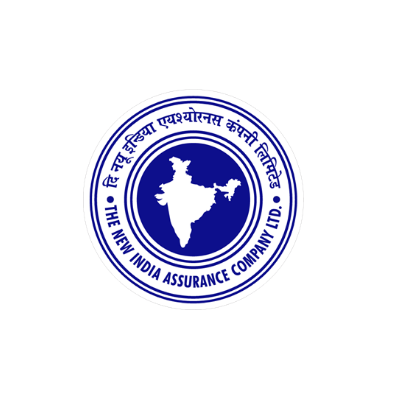BEST CANCER INSURANCE POLICY IN INDIA
What is Cancer Insurance?
Cancer insurance is a special type of health insurance designed to provide financial protection for the expenses related to diagnosis and treatment of cancer. Buying cancer insurance policy supplements covering costs associated with advanced cancer treatments that may not be covered under standard health or mediclaim policy. Insurance policies for cancer cover the expenses related to advanced cancer care like chemotherapy, radiation, and surgeries.
Typically, payments are due at different stages of diagnosis, such as minor, major, and critical stages. Death, maturity, or surrender benefits are, however, not frequently included in cancer insurance contracts. In actuality, it goes beyond only the cost of the cancer hospital stay itself.
The insured person cannot have a history of cancer in order to be eligible for cancer insurance. Cancer insurance is also not available to people who have already received a cancer diagnosis and treatment.
Benefits of Cancer Insurance Policy?
Comprehensive Financial Coverage
A cancer insurance policy provides comprehensive financial protection against medical and non-medical expenses in cancer treatment. Unlike traditional health insurance which mainly focuses on hospice cost, cancer policy also covers costs associated with non medical aspects like travel, rent, homecare during recovery.
Lump-Sum Payout
This feature of cancer insurance provides policyholders a lump-sum amount for initial medical expenses without waiting for treatment bills. This quick disbursement helps to manage initial medical and non medical expenses associated with cancer treatment.
No Claim Bonus
No Claim Bonus is a significant feature which serves as a reward for cancer policyholders who do not make any claim during the policy period. With no claim in policy year, NCB increases insured some by fixed percentage as bonus.
Tax Benefits
Buying cancer insurance also offers tax benefits. In India cancer policy premiums qualify for tax deduction under section 80D under Income Tax Act. By availing this policyholder can reduce their taxable income.
Psychological Relief
Knowing that the insurer is compensating for complete treatment, provides psychological relief enabling patients and their family to focus on recovery rather than worrying about finances.
No Dependency on Standard Health Insurance
Cancer insurance policy avoids policyholders over reliance on standard health insurance which generally cover medical expenses only and may not fully cover complete cancer treatment cost. Whereas insurance policy for cancer treatment covers costs associated with recurrence or relapse of a disease which often requires additional treatments and prolonged care.
Premium Waiver
Many cancer insurance policies waive out all future premiums upon diagnosis of cancer to policyholders. This ensures that the policy remains active, providing additional coverage if needed.
Income Protection
Some cancer insurance policies compensate for loss of income if the policyholder or a family member needs to stop working to focus on treatment and recovery.
List of Cancer Insurance Plans in India
|
|
|
|
|
|
|
|
|
|
|
|
|
|
|
|
|
|
|
|
|
|
|
|
|
|
|
|
|
|
|
|
|
|
|
|
|
|
|
|
|
|
|
|
|
|
|
|
How Does Cancer Insurance Policy Work?
Policy Purchase
You can choose cancer insurance policies depending on the sum insured, premium amount, and features of the policy.
Coverage Start After Waiting Period
Most cancer insurance policies come with a waiting period of 30-90 days after the policy purchase meaning claims only be made after this waiting period.
Claim on Diagnosis
If a policyholder is diagnosed with cancer, the insurer provides some part of the sum insured as a lump-sum amount without the need of treatment bills. Other amounts may be disbursed according to the treatment slabs.
Benefits Based on the Stage of Cancer
If a policyholder is diagnosed in an early stage, 25 to 30 percent of the sum insured is paid out. If a policyholder is diagnosed with an advanced stage insurer may pay the full sum insured at a time or in slabs and might terminate the policy.
Renewal
Depending upon the policy you choose it may terminate upon full payout or you can renew the policy as usual.
Why Should You Consider Buying Cancer Insurance Policy?
Rising Number of Cases
In India cancer cases are projected to rise significantly in coming years. Insurance for cancer treatment ensures you are financially prepared to face this deadly disease.
Coverage for All Stages of Cancer
Cancer insurance policies provide financial support across all stages including early stage diagnosis to advanced stage illness.
Avail Dual Benefits
Some insurers avail the dual benefits in terms of lump-sum amount for the treatment and income replacement payouts ensuring stable household finance.
Rising Treatment Cost
Modern treatments in cancer including radiation, chemotherapy, surgeries are expensive. With safeguarding yourself with right cancer insurance, you can cover expenses beyond these high cost treatments.
Types of Cancer Covered By Cancer Insurance Plans in India
Here are the common types of cancer typically covered in insurance in India.
-
Breast Cancer
-
Lung Cancer
-
Cervical Cancer
-
Oral and Mouth Cancer
-
Prostate Cancer
-
Colorectal Cancer
-
Stomach Cancer
-
Ovarian Cancer
Exclusions of Cancer Insurance Policies
Pre-Existing Cancer Conditions
Any cancer diagnosis or treatment prior to purchasing the cancer insurance policy is typically excluded. Hence cancer insurance policies have waiting periods ranging from days to years.
Non-Invasive or Early-Stage Cancers
Some insurers may not provide full coverage to policyholders if diagnosed with early stage cancer. Only a partial amount will be reimbursed for the treatment.
Waiting Period Clause
Most cancer insurance plans have an initial waiting period from the date of policy inception. Cancer diagnosed during this waiting period will not be covered under insurance policy .
Certain Types of Skin Cancer
Insurance plans do not cover specific types of skin cancer treatments.
Secondary Conditions or Complications
Complications and conditions arising due to the side effects of main cancer treatments are excluded from the cancer policy coverage.
Cosmetic Treatments
Generally cancer insurance plans do not cover the cost associated with cosmetic or reconstructive treatments that are not medically necessary.
Things to Consider Before Buying Cancer Insurance Policy
You must consider the following factors to ensure you get the right cancer insurance that meets your requirements and manage treatment costs.
Coverages
Check scope of coverage of the policy to make sure what types and stages of cancers are covered under the insurance. It is advisable to opt for a policy with comprehensive coverage to avoid financial strain during treatment.
Claim Settlement Ratio
Like health insurance you must compare the cancer insurance plans claim settlement ratio. CSR reflects the insurer's reliability and commitments to honor the claims.
Payout Structure
It is important to understand terms and conditions related to payout before investing in cancer insurance. Check if the insurer disbursed amount as lump-sum or stage wise or mix of both.
Premiums
Compare the premium-to-benefit ratio of different policies for cancer available in the market. Premiums should be affordable and proportionate to the coverage provided.
Solvency Ratio
Solvency ratio reflects insurers financial health and ability to pay claims especially during financial crises. Prefer policies from the insurer having solvency ratio of 1.5 or above.
FAQs on Cancer Insurance
Does Normal Health Insurance Cover Cancer Treatment?
Yes, health insurance does cover cancer treatment but has some limitations according to the stage at which cancer is diagnosed. Normal health insurance often covers the cost of hospitalization, chemotherapy, surgery, and radiation and may exclude costs associated with non medical treatment.
Does Cancer Insurance Cover the Cost of Chemotherapy?
Yes, cancer insurance does cover the cost of chemotherapy as cancer treatment, although coverage amount may vary depending on the stage of the cancer policy payout structure.
Does Cancer Insurance Cover Radiation?
Yes, radiation is an essential part of cancer treatment and is often included under cancer insurance coverage. Depending on the selected policy, there may be limits on the number of sessions or the cost per session of radiation.
Can I Cancer Insurance Policy Can be Purchased by Existing Cancer Patients?
No, cancer insurance cannot be purchased for those who have already been diagnosed with cancer, as this would be considered a pre-existing condition.
What Types of cancers are covered in cancer insurance?
Cancer insurance typically covers a wide range of cancers, common cancer types covered under insurance are breast, lung, colon, prostate, cervical cancer.
What is the survival period in a Cancer insurance policy?
The survival period refers to the minimum time the insured must survive after being diagnosed with cancer before they can claim the benefits of cancer insurance policy.




































